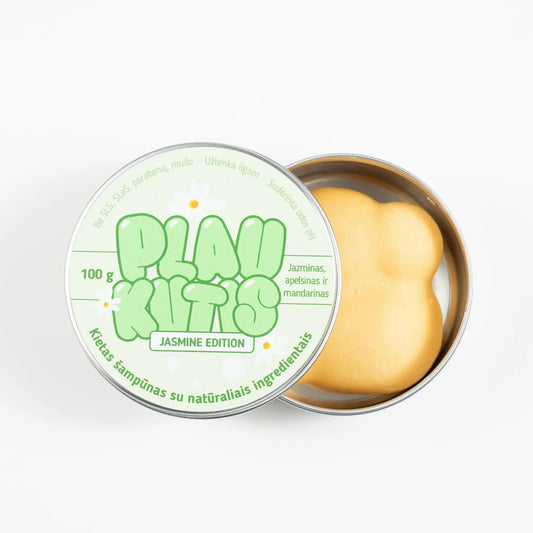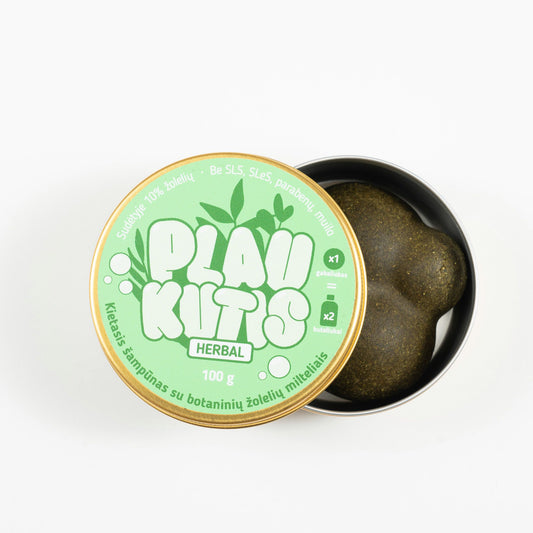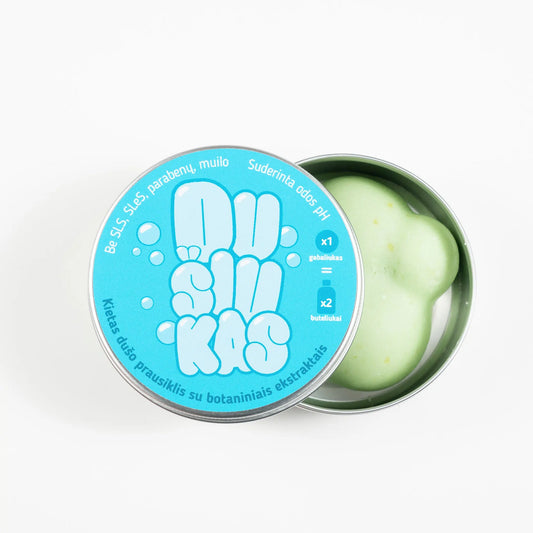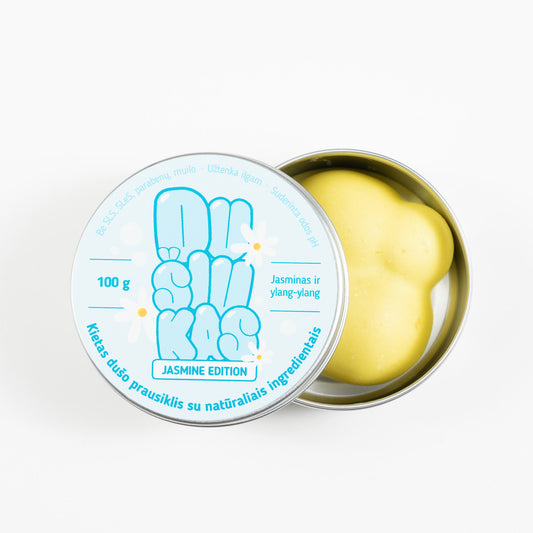Most people focus on shampoos, conditioners, and styling products, but they rarely consider the impact the water they use to wash their hair has on their hair. Whether you use hard or soft water can make a big difference in the appearance and condition of your hair. Hard water is rich in minerals like calcium and magnesium, while soft water is lower in these minerals. These differences affect how your hair reacts to cleaning products and even how well it retains moisture.
Water hardness varies greatly depending on where you live. According to the U.S. Geological Survey , 85% of homes in the U.S. have hard water, which means most people are exposed to it every day. In this article, we’ll discuss the differences between hard and soft water, how they affect your hair, and what you can do to adapt your hair care routine to your local water quality levels.
How hard water affects hair and scalp health
Hard water is notorious for its negative effects on hair. The minerals in it react with your hair care products, making them less effective and build up on your hair. This can lead to greasy, dry, and heavy hair. A 2016 study published in the International Journal of Trichology found that people who washed in hard water experienced a 10-20% reduction in shampoo effectiveness due to the minerals interacting with the cleansing process.

Hard water minerals and their effects on hair
Hard water is rich in calcium and magnesium minerals, which bind to the surface of the hair and prevent moisture and nutrients from penetrating the hair cuticle, making hair dry and brittle.
- Dullness and dryness : A 2020 study from The Journal of Cosmetic Science found that hair washed with hard water had 25% less moisture compared to hair washed with soft water. This lack of moisture makes hair dry and brittle.
- Scalp irritation : Hard water can also cause scalp problems, such as a buildup of residue that clogs hair follicles. According to a 2019 study published in the Journal of Dermatology , people who washed their hair with hard water were 35% more likely to experience scalp irritation, itching, and flaking.
- Effects on color-treated hair : Hard water can strip hair color faster than soft water. The minerals in hard water open up the hair cuticle, allowing dye molecules to wash out more quickly. A 2021 study published in the Journal of Cosmetic Dermatology found that people with color-treated hair experienced 30% faster color fading when washing with hard water than when washing with soft water.

Long-term effects of hard water on hair texture
Washing your hair with hard water for a long time can have long-term effects on your hair’s texture. A 2018 study by the American Academy of Dermatology found that people who regularly washed their hair with hard water experienced up to 20% more hair breakage than those who used soft water. Hard water causes minerals to build up on the scalp, clogging hair follicles and can weaken hair growth.
- Frizz and tangling : Hair that is washed with hard water becomes more prone to frizz and tangling. A 2020 clinical study found that hair washed with hard water had 30% more frizz than hair washed with soft water, due to mineral deposits that change the hair's structure.
- More breakage and split ends : The minerals in hard water weaken hair over time, making it more prone to breakage and split ends. This is especially true for long hair, as the ends are already prone to damage.

How soft water affects hair health
Soft water, which is free of heavy minerals, is gentler on your hair. It allows cleansers to work more effectively and helps your hair retain its natural oils. However, soft water isn’t for everyone – some people may find that it makes their hair feel greasier or more frizzy.
Benefits of soft water for hair
Soft water is especially beneficial for those with dry or damaged hair. In addition to the minerals found in hard water, soft water allows moisturizers to penetrate the hair better, keeping it moisturized. A 2020 study from The Journal of Hair Science found that people who switched from hard to soft water experienced 25-30% higher hair moisture levels within four weeks.
- Shiny and smooth hair : Because soft water doesn’t leave behind mineral deposits, hair looks shiny and feels smooth. A 2019 study found that hair washed with soft water was 25% shinier and retained more natural oils than hair washed with hard water.
- Less product usage : Shampoos and conditioners lather better and work more effectively in soft water. This means you can use less product and still achieve the desired results, reducing residue and hair stress over time.

Challenges of using soft water
While soft water is beneficial for many people, it can be problematic for those with oily or thin hair. In addition to the minerals that balance the hair's natural oils, some may find that soft water makes their hair feel greasier or duller.
- Hair that feels limp : Soft water can make hair feel weighed down for people with fine or oily hair. The lack of minerals causes hair to retain more natural oils, which can make it feel greasy. A 2021 survey found that 20-25% of respondents with fine hair reported increased oiliness after switching to soft water.
- Product residue : Because soft water doesn't break down oil and product residue as effectively on some hair types, you may need to use a clarifying shampoo more often to prevent buildup.
Mineral deposits and their impact on cleaning routines
One of the biggest problems with hard water is mineral buildup. The minerals in hard water bind to your hair and prevent shampoos and conditioners from working as they should. This buildup can leave your hair feeling greasy and heavy, even with frequent washing.
A scientific approach to mineral deposits
Calcium and magnesium found in hard water bind to the surface of the hair, creating a film that prevents moisture and cleaning products from penetrating the hair. This buildup can leave hair greasy, sticky, or heavy. A 2019 study published in the Journal of Cosmetic Dermatology found that people with hard water had 25-30% more mineral buildup on their hair compared to those with soft water, which increased dryness and hair breakage.
How to identify mineral deposits on hair
If you use hard water, there are several signs that mineral deposits may be affecting your hair:
- Lack of shine and vitality : If hair looks lifeless and lacks shine, even with the use of quality products, it is often a sign of mineral deposits.
- Frizz and tangling : Hard water lifts the hair cuticles, causing hair to become frizzy and tangled. A 2020 study found that hair washed with hard water had 30% more frizz than hair washed with soft water.
- Increased breakage : If you experience breakage despite using moisturizing products, hard water may be to blame, as it makes your hair more brittle over time.
.

How to remove hard water deposits from hair
If you suspect that hard water is affecting your hair, there are several ways to restore its health:
- Clarifying shampoo : Use a clarifying shampoo once a week to remove mineral buildup. Look for shampoos with EDTA, which binds to minerals and helps remove them. A 2021 study found that EDTA-based shampoos reduced mineral buildup by 35% after just one use.
- Apple cider vinegar rinse : Apple cider vinegar is an effective home remedy for breaking down mineral deposits. Mix equal parts water and vinegar and pour it on your hair after shampooing. Leave it on for a few minutes, then rinse. This method can reduce deposits by 20-25% .
- Shower filter : A shower filter can help reduce mineral deposits in your water. A 2020 study found that installing a shower filter reduced mineral deposits by 40% within six months.

Myth busting or interesting facts
- Myth: "Hard water slows hair growth."
Fact : Hard water doesn't slow hair growth, but it can weaken the hair shaft, making it more prone to breakage. A 2021 study didn't show a direct link between hard water and hair growth, but it did highlight the impact on hair strength and resilience. - Fun fact : About 85% of homes in the US have hard water, which means most people are experiencing its effects on their hair without even realizing it.
- Myth: "Soft water is always better for hair."
Fact : While soft water can be beneficial for many, people with fine or oily hair may find that it makes their hair look greasy and weighed down. A 2021 survey found that 25% of people with fine hair preferred the texture of their hair after washing with hard water. - Interesting fact : Hard water contains 2-3 times more calcium and magnesium than soft water, which causes faster buildup of scale on hair.
- Myth: "Having hard water means you need to wash your hair more often."
Fact : Washing your hair more often does not solve the problem of mineral deposits. Instead, clarifying shampoos and a shower filter can more effectively eliminate the problems caused by hard water.
Practical tips or solutions
- Install a shower filter : A shower filter is an easy way to reduce the calcium and magnesium levels in your water, preventing mineral deposits from building up on your hair.
- Use a clarifying shampoo : If you live in an area with hard water, use a clarifying shampoo once a week to break down mineral deposits.
- Try an apple cider vinegar rinse : Apple cider vinegar helps break down mineral deposits. Use it as a rinse after shampooing to keep your hair clean and healthy.
- Moisturize : If your hair is dry and brittle due to hard water, use a deep conditioner once a week to restore moisture levels.
- Test your water quality : Not sure if your water is hard or soft? You can purchase a water hardness testing kit online to determine how to best adjust your hair care routine.
Frequently asked questions
Q: What is the difference between hard and soft water?
A: Hard water is high in calcium and magnesium, while soft water is low in these minerals. These differences affect how your hair responds to shampoo and conditioner.
Q: How do I know if I have hard water?
A: Signs of hard water include mineral deposits on taps, dry or dull hair, and shampoo that doesn't lather well. You can also use a water hardness testing kit.
Q: Can hard water cause dandruff?
A: Hard water can dry out your scalp, causing dandruff or itching. Using a scalp treatment or a clarifying shampoo can help alleviate these symptoms.
Q: Is soft water better for color-treated hair?
A: Yes, soft water is gentler on color-treated hair and helps maintain the brightness of your hair color for longer compared to hard water.
Q: How often should I use a clarifying shampoo if I have hard water?
A: It is recommended to use a clarifying shampoo once a week to remove mineral deposits and maintain healthy hair.

Conclusion: Water quality and your hair care
Understanding whether you have hard or soft water is crucial to maintaining healthy hair. Hard water can cause dryness, dullness, and buildup, while soft water can make hair oily or dull for some people. By checking your water quality and adjusting your hair care routine, you can minimize damage, improve the effectiveness of products, and keep your hair looking its best. Whether it’s installing a shower filter or using cleansing products, small changes can go a long way toward improving the health of your hair.













